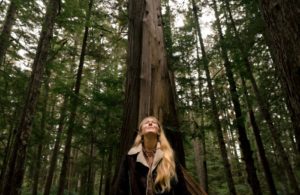In September, I received the curriculum for the Indigenous Studies courses I was taking at Camosun College. Some deep part of me exhaled a bated breath.
Here was proof that we do not have to consider the Earth just a “resource”: stories, videos, articles all explaining how Indigenous people of Turtle Island have interacted with and respected this robust and unruly continent since time immemorial.
Here were documents saying it is not only okay to look at our planet as a teacher, friend, and relative, but that this way is the inherent truth about how humans naturally came to be on these lands.
How things are now is never how they were meant to be.
The westernized world that we live in has, literally, no culture. We have been stripped away from such a concept because it would encourage the people of this land to think differently and seek alternate strategies for life than those imposed by colonial systems.

I have learned that so-called “Canada” was once saturated with culture, and that it’s still alive and thriving. Hundreds of years of assimilation and genocide did not diminish the connection that First Nations people have with this land.
For me these courses have shed light on how ridiculous, insufficient, and outright rude the ways that Indigenous people are still currently treated in this country are.
The many assignments and reflections requested of us have raised some very worthwhile questions within me. As a settler of European descent, I am now so curious as to the timeline and evolution of ideas that occurred in Europe before contact. How had these people wound up already so money- and rank-oriented? What was the progression that pushed Europeans away from the eldest ways of being that once existed over there?
I know that a form of communion with the land was present a long, long time ago, for I’ve heard it mentioned in stories and, quite honestly, I feel this truth deep in my bones.
The unfortunate conditioning I have been raised amongst here in the westernized world has also stripped me of any authentic connection to this knowledge, but I know that it’s there, far beyond the chunk of time explained to us as what is significant and what is worth knowing.
This life is not limited to the version deemed proper and correct by the colonial structure. There is so much more beyond that sliver of a timeline we are fed as the only relevant narrative.
After digging into the history of Turtle Island and how its Indigenous people lived and interacted with this land, I no longer have any doubt that the way forward should be propelled by the very essence of the past.
